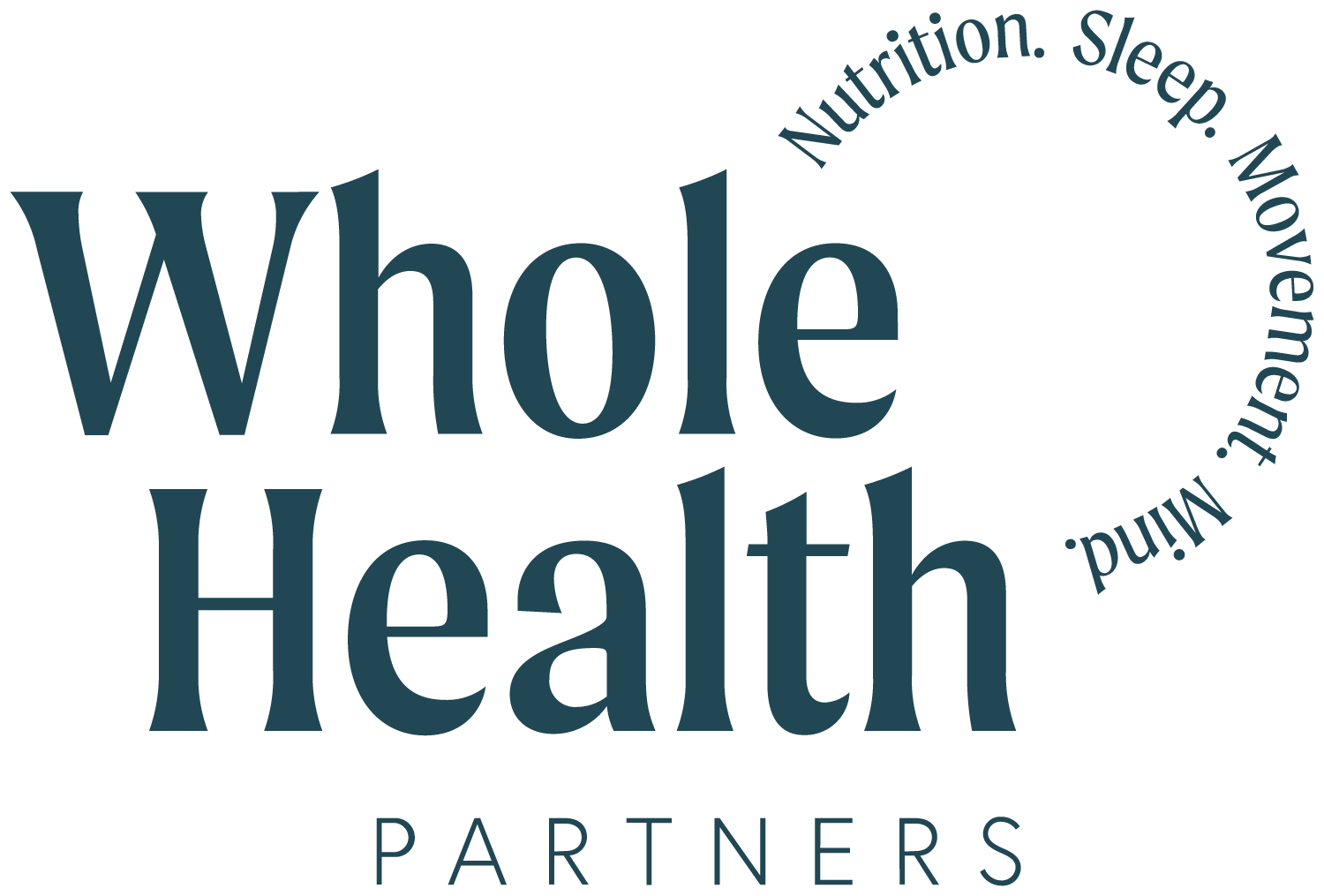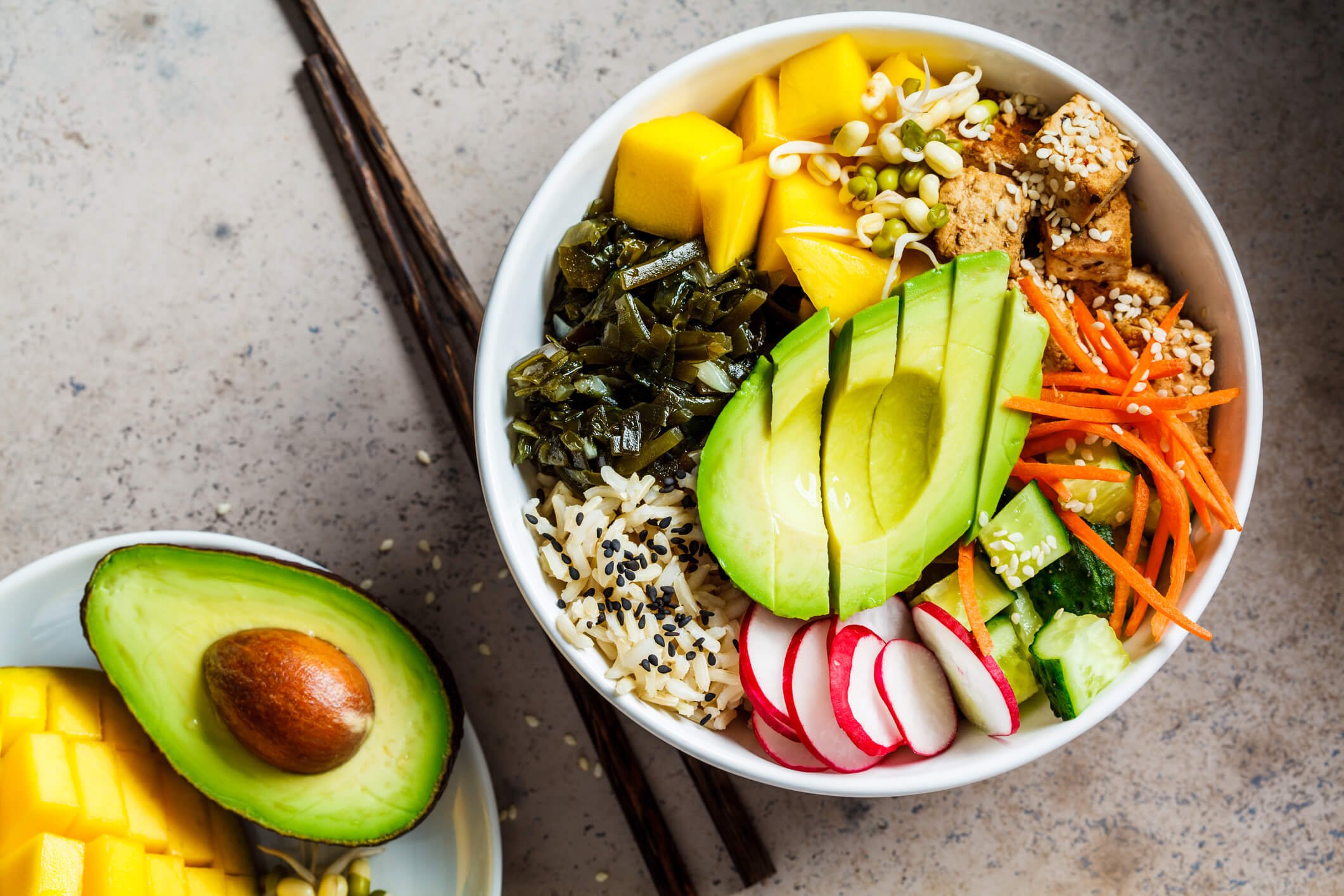How to Lower Cholesterol Without Statins: Dietary Adjustments
At Whole Health Partners, we believe true wellness encompasses a whole-person approach, nurturing your body's natural ability to thrive. When it comes to heart health, one critical factor often overlooked is cholesterol. Maintaining healthy cholesterol levels is essential for a vibrant, long life, but many people underestimate just how significant this is.
High cholesterol can silently pave the way for serious health issues, most notably heart disease, which remains a leading cause of death. While conventional medicine plays a vital role, we firmly believe in the power of natural approaches to support long-term cardiovascular well-being. We'll delve into the importance of managing your cholesterol with lifestyle medicine, empowering you with the knowledge and tools to keep your heart happy and healthy.
Understanding Cholesterol: The Good, the Bad, and Beyond
Cholesterol often gets a bad rap, but it's a vital substance your body needs to function properly. It's a waxy, fat-like substance found in your blood, and it plays a crucial role in building cells, producing hormones, and even aiding digestion. However, not all cholesterol is created equal. We often talk about two main types: LDL and HDL cholesterol.
LDL (Low-Density Lipoprotein) is often called "bad cholesterol" because high levels can contribute to plaque buildup in your arteries, increasing your risk of heart disease. Think of LDL as little delivery trucks carrying cholesterol to your cells. Too many trucks, and you get a traffic jam—in this case, plaque buildup. In addition to LDL cholesterol levels, other important markers include Apo B, a protein attached to LDL and a better predictor of cardiovascular risk than LDL alone, and Lipo(a), a genetically influenced form of cholesterol that can also increase risk.
HDL (High-Density Lipoprotein), on the other hand, is known as "good cholesterol." It acts like a cleanup crew, helping to remove excess cholesterol from the arteries and transporting it back to the liver for processing. A healthy level of HDL helps protect against heart disease.
Triglycerides are another type of fat in your blood. High levels of triglycerides, often combined with high LDL and low HDL, can also increase your risk of heart disease.
Cholesterol levels are measured through a simple blood test called a lipid panel. This test will provide you with your total cholesterol, LDL cholesterol, HDL cholesterol, and triglyceride levels. What constitutes "high cholesterol" varies slightly depending on individual risk factors, but generally, elevated LDL, triglycerides, and low HDL are a cause for concern. Your doctor will interpret your results in terms of your overall health and determine the best course of action.
The Role of Statins
One common approach to managing high cholesterol, particularly high LDL, is to take statin medications. Statins work by inhibiting an enzyme in the liver that produces cholesterol. This, in turn, lowers the amount of LDL cholesterol circulating in the bloodstream.
For individuals at high risk of heart disease, such as those with a history of heart attack or stroke or those with multiple risk factors, statins can be very beneficial in reducing their risk of future cardiovascular events. They've been extensively studied and proven effective in these populations.
However, like all medications, statins can have potential side effects. Muscle pain is a relatively common complaint, although most people tolerate statins well. In rare cases, more serious side effects can occur. It's crucial to discuss the potential benefits and risks of statin therapy with your doctor, especially if you have any pre-existing health conditions or concerns. They can help you determine if statins are the right choice and monitor you for potential side effects. Furthermore, statins aren't a magic bullet. They work best with a healthy lifestyle, including a balanced diet and regular exercise.
Natural Alternatives to Statins: Exploring Lifestyle Changes
At Whole Health Partners, we believe in empowering you to make informed choices about your health. If you're looking for natural alternatives to statins for managing your amount of cholesterol, lifestyle changes can play a significant role. These changes not only support heart health but also contribute to overall well-being. Let's explore some key areas where you can make a difference:
Dietary Adjustments
Fiber: Your Cholesterol's Best Friend
Soluble fiber acts like a sponge in your digestive tract, soaking up cholesterol and helping your body eliminate it. Think of it as a clean-up crew for your arteries! Load up on fiber-rich foods like:
Beans and Legumes: Lentils, chickpeas, and black beans are fiber-packed nutritional powerhouses.
Fruits: Apples, pears, berries, and citrus fruits are good sources.
Vegetables: Broccoli, Brussels sprouts, and carrots contribute to your fiber intake.
SMASH Fish: A Heart-Healthy Catch
"SMASH" is a handy acronym to remember some of the best fish for heart health, thanks to their high omega-3 fatty acid content.
Salmon: A delicious and versatile source of omega-3s.
Mackerel: Another excellent option, often available canned.
Anchovies: Small but mighty, these fish are packed with omega-3s.
Sardines: A convenient and affordable way to boost your omega-3 intake.
Herring: A flavorful fish rich in healthy fats.
Eating or taking omega-3s, like fish oil, helps lower triglycerides, raise HDL ("good") cholesterol, and may reduce inflammation. Aim for at least two servings of SMASH fish per week.
Fats: Choosing Wisely
Not all fats are created equal. To optimize your cholesterol levels, focus on incorporating healthy fats while limiting unhealthy ones:
Embrace the Good: Monounsaturated fats (found in olive oil, avocados, and nuts) and polyunsaturated fats (found in SMASH fish, flaxseed, soybeans, and walnuts) can help lower LDL ("bad") cholesterol. The American Heart Association (AHA) recommends that most fats in your diet be these two.
Limit the Bad: Saturated fats (found in red meat, dairy products like butter and margarine, and processed foods) and trans fats (often found in baked goods, fried foods, and some vegetable oils) can raise LDL cholesterol. Read food labels carefully, choose lean protein sources, limit processed foods, and cook with healthy oils.
Take Charge of Your Heart Health
Your heart health is in your hands. Don't wait for problems to arise—take proactive steps today to lower your cholesterol naturally and safeguard your well-being.
As we've discussed, managing cholesterol effectively involves a multi-faceted approach. Remember these key actionable tips:
Embrace a Heart-Healthy Diet: Consume plenty of fruits, vegetables, whole grains, and lean protein. Limit saturated and trans fats and added sugars.
Prioritize Regular Exercise: Aim for at least 30 minutes of moderate-intensity exercise most days to help prevent cardiovascular disease. Find activities you enjoy to make it a sustainable habit.
Maintain a Healthy Weight: Even a small amount of weight loss can significantly impact your cholesterol levels and overall health.
Consider Natural Supplements (with Guidance): Certain dietary supplements, like omega-3 fatty acids or plant sterols and stanols, may help lower cholesterol and reduce blood pressure. However, always consult with a healthcare professional before starting any new supplements.
Ready to control cholesterol and create a personalized plan for optimal heart health? Contact Whole Health Partners today for a consultation. We can help you navigate the world of natural cholesterol management and develop a strategy that fits your unique needs and lifestyle. Don't wait—your heart will thank you!
FAQ About Cholesterol Management
Can high cholesterol be reversed without statins?
Yes, in many cases, high cholesterol can be lowered without the use of statin medications. Lifestyle changes, such as adopting a heart-healthy diet, exercising regularly, maintaining a healthy weight, and managing stress, can significantly impact cholesterol levels. Natural supplements, under the guidance of a healthcare professional, may also play a role.
However, it's important to remember that the effectiveness of natural approaches varies from person to person. In some cases, statins or other medications may be necessary, especially if you have other risk factors for heart disease. Always discuss your options with your doctor to determine the best treatment.
What foods should I avoid to manage cholesterol?
Yes, in many cases, high cholesterol can be lowered without the use of statin medications. Lifestyle changes, such as adopting a heart-healthy diet, exercising regularly, maintaining a healthy weight, and managing stress, can significantly impact cholesterol levels. Natural supplements, under the guidance of a healthcare professional, may also play a role.
To manage your cholesterol levels, it's important to limit foods high in trans fats and replace them with foods high in unsaturated fats. Foods high in trans fat include:
Processed Meats: Bacon, sausage, and deli meats
Fried Foods: Fast foods, french fries, fried fish
Baked Goods: Prepared cakes, cookies, and pastries
Limiting your intake of added sugars is also a good idea, as they can contribute to increased production of LDL cholesterol and high triglycerides.
Explore Our Services
Women’s Health: Hormonal Health, Polycystic Ovarian Syndrome (PCOS), and Perimenopause/Menopause
Diabetes, Pre-Diabetes, Insulin Resistance, and Blood Glucose Management
High Blood Pressure/Hypertension Management
High Cholesterol Management
Lifestyle Medicine




